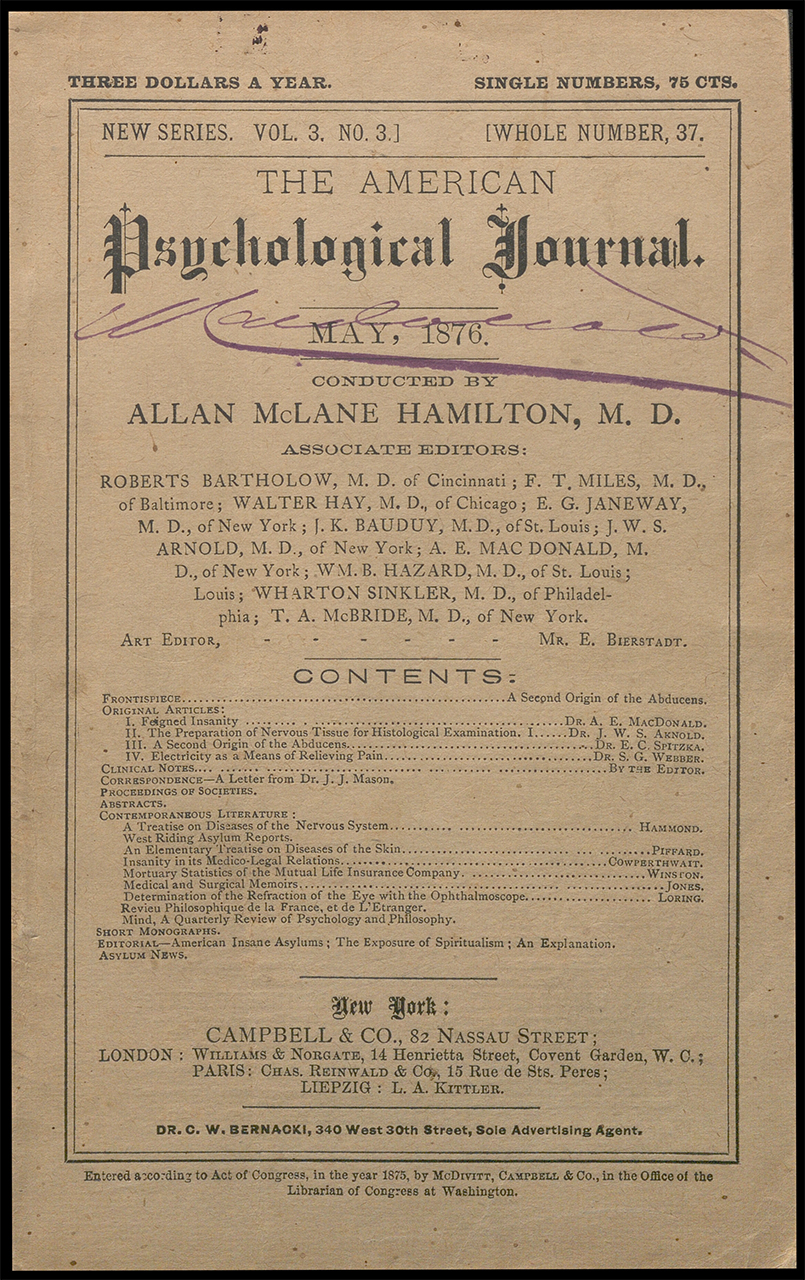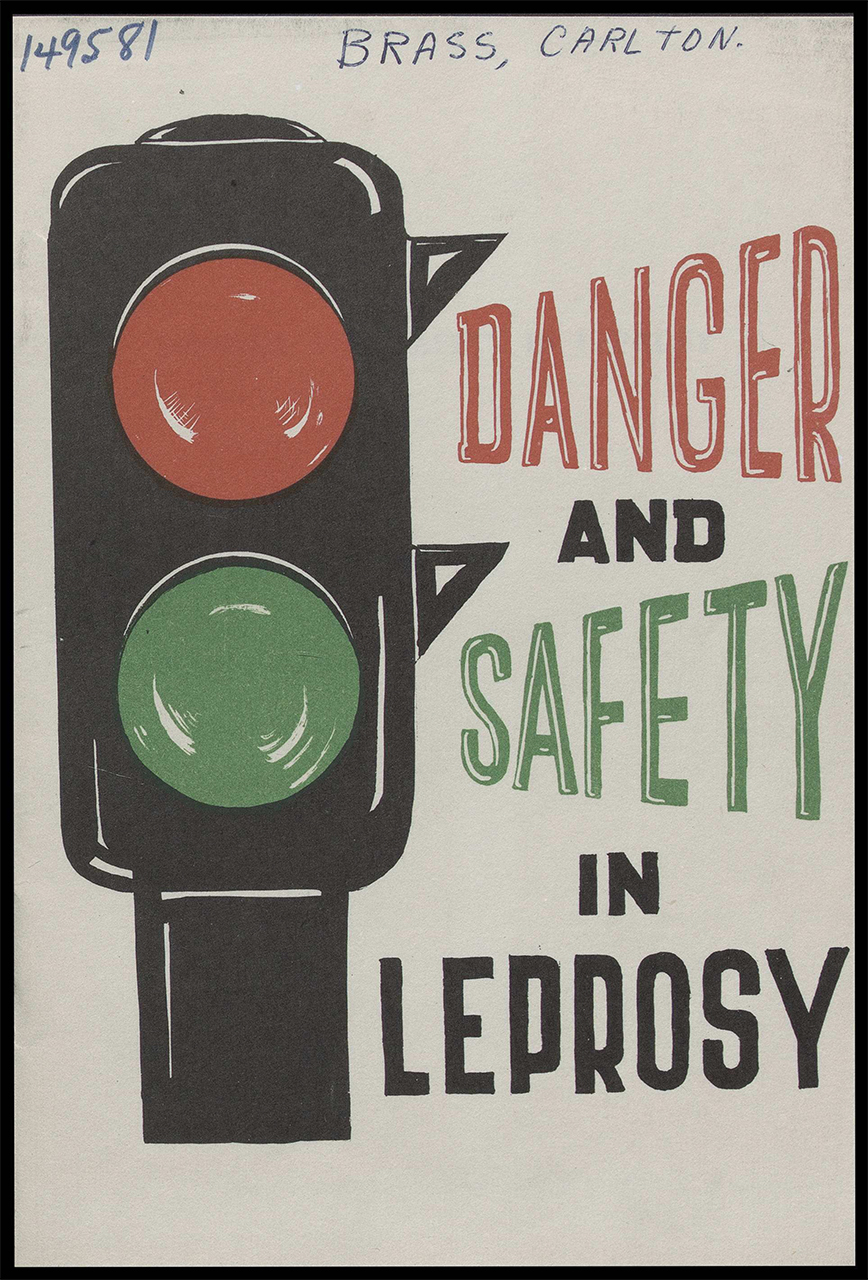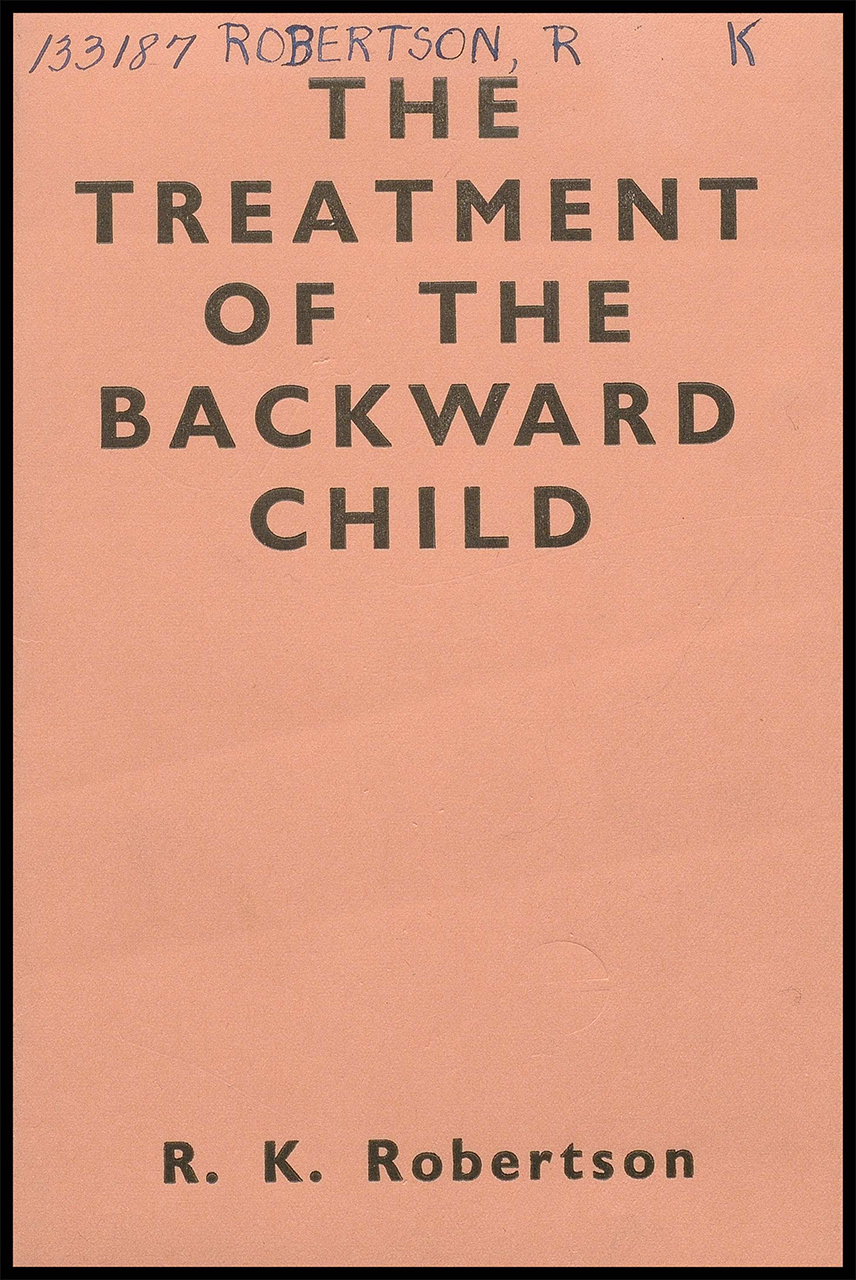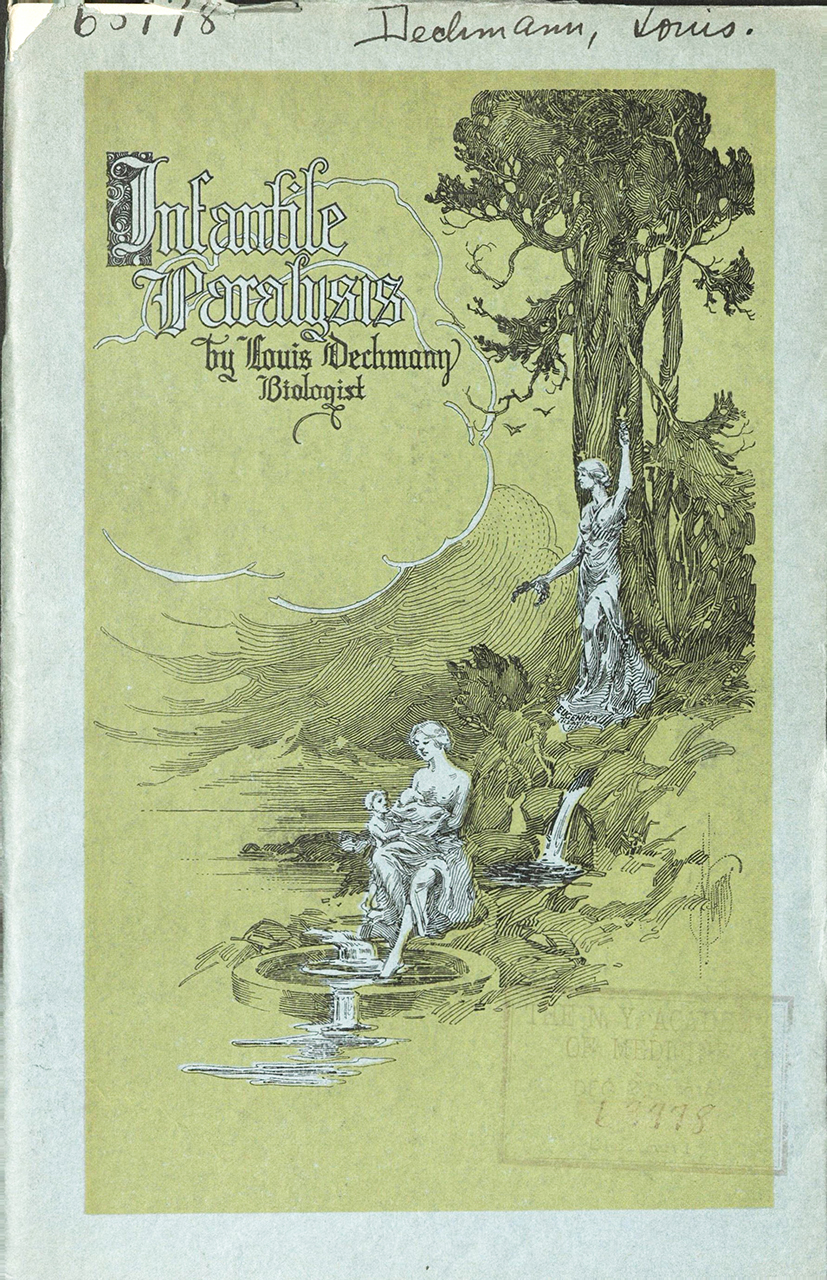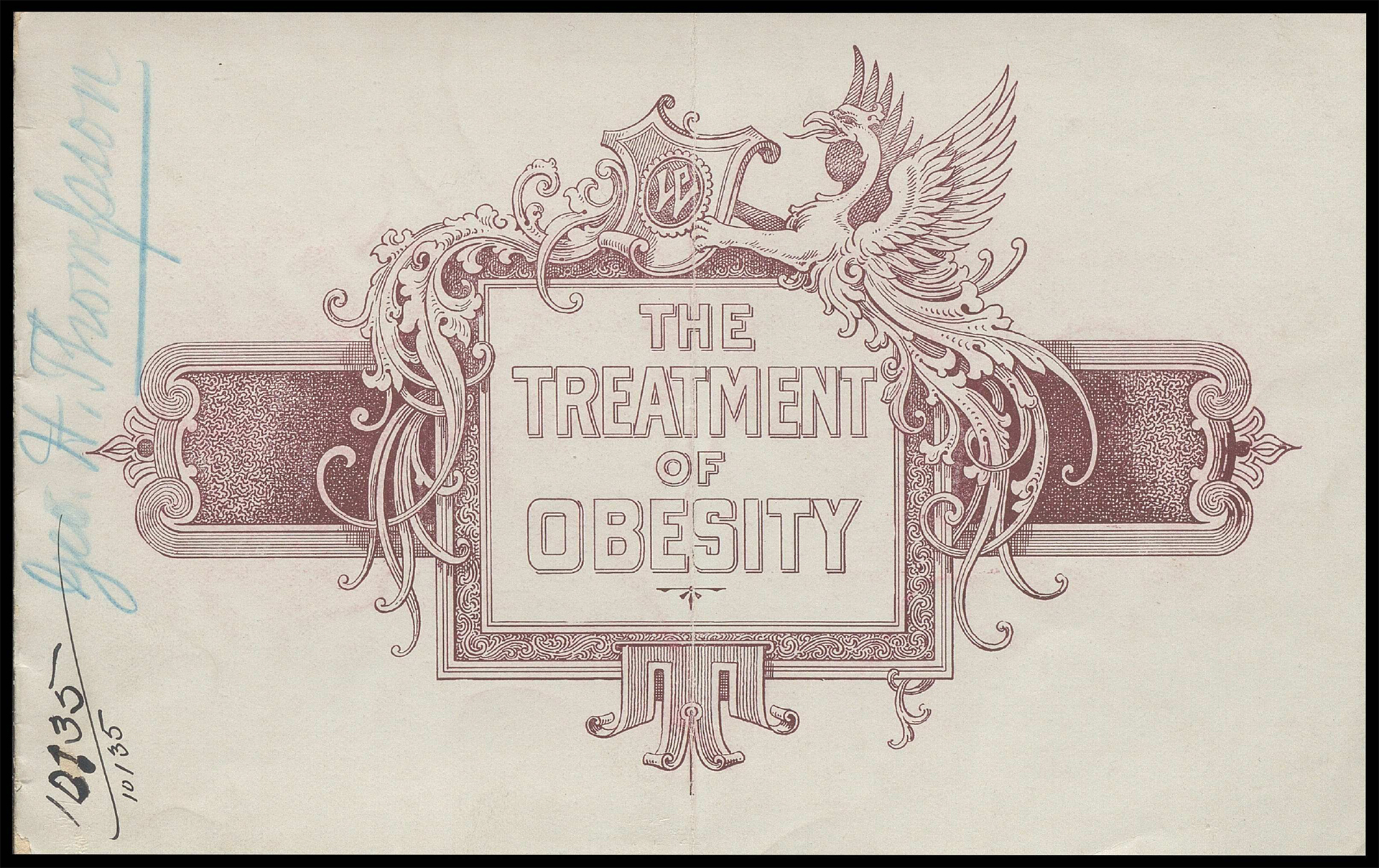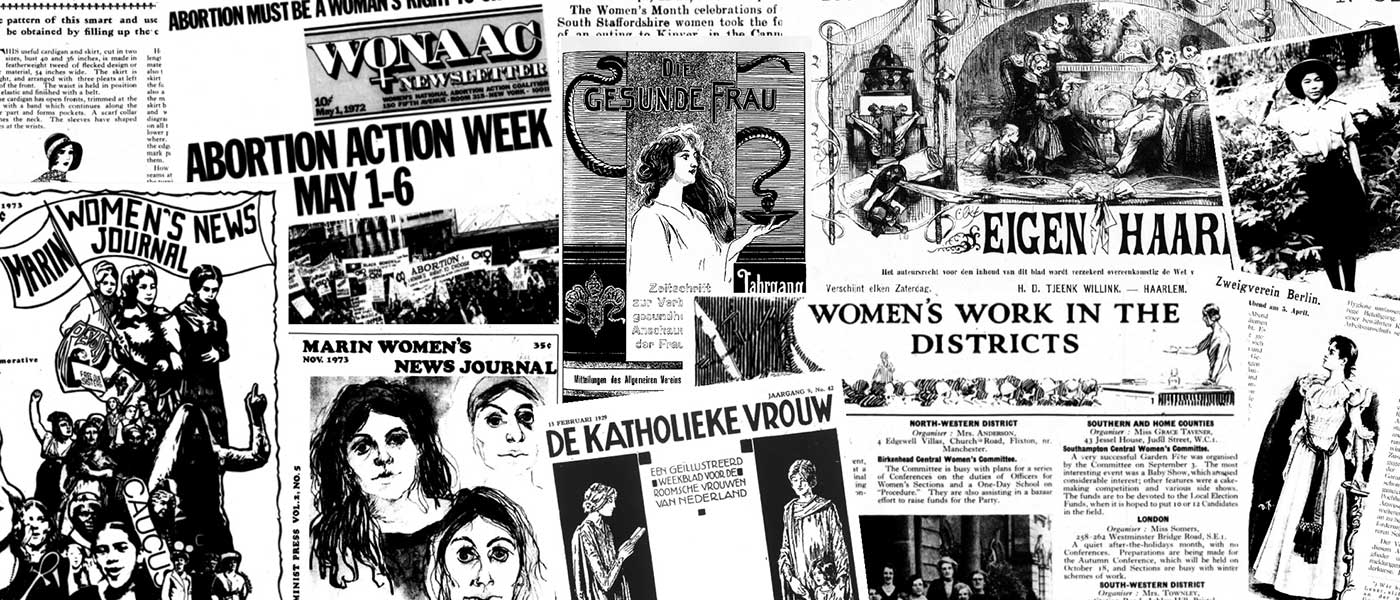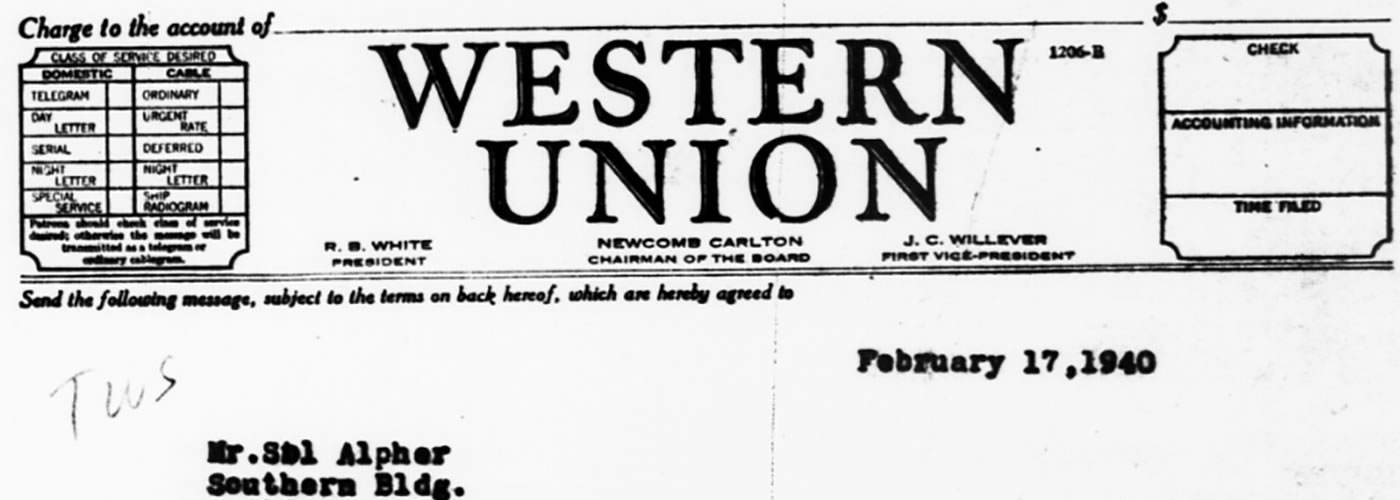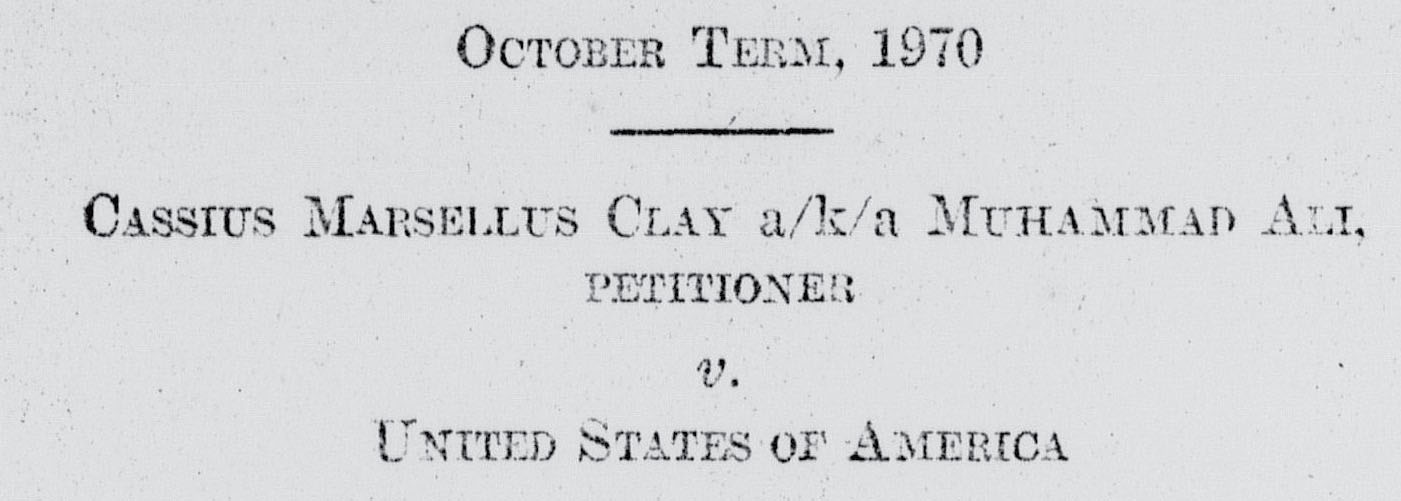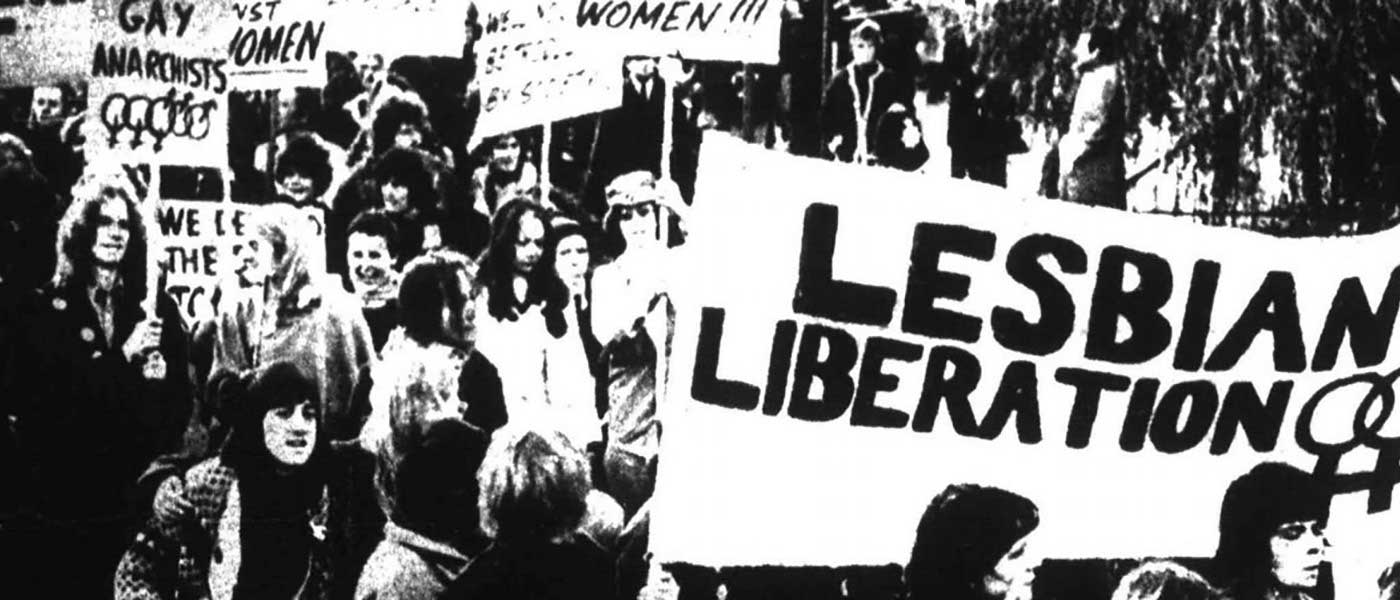A Collection of Primary Source Material Documenting the History of Disability in Society
Disabilities in Society, Seventeenth to Twentieth Century demonstrates how society has presented and treated individuals with disabilities historically. Materials in this collection include personal memoirs, records of treatments, methods of education, and forms of remediation. Reports and proceedings of organisations and institutions that sought to help or heal those with disabilities are included, as well as records of policies and programs. Through this collection, researchers will grasp the many forms of institutional discrimination, political exclusion, and social control under which disabled individuals struggled. Materials chronicle how individuals were classified and treated and how some overcame physical or mental challenges to defy perceptions of being disabled.
ABOUT THE COLLECTION
Disabilities in Society, Seventeenth to Twentieth Century focuses on the social aspects of disabilities, how we have historically interacted with people with disabilities, and where this has led us as a society.
These books, pamphlets, and manuscripts from the New York Academy of Medicine Library mainly span the nineteenth and twentieth centuries, with some content dating back to the seventeenth century. Materials are primarily from the United States and United Kingdom and in English, but some content is included from other countries in languages that include German and French.
ABOUT THE SOURCE LIBRARY
New York Academy of Medicine was established in 1847 as an independent organisation interested in promoting public health and regulating and improving the profession of medicine in New York City. Through original research, policy, and program initiatives, the Academy provides the evidence base to address the structural and cultural barriers to good health and drive progress toward health equity. The Academy Library provides insights into the formative texts and medical thinking in which contemporary practice is rooted, thus demonstrating society’s attempts to understand our bodies, minds, and health across time and culture. The Library’s major historical holdings include a rare collection of pamphlets, gray literature, and Western medical texts spanning from the sixteenth to the twenty-first century.
SAMPLE CONTENT
- The Conquest of Deafness: A History of the Long Struggle to Make Possible Normal Living to Those Handicapped by Lack of Normal Hearing
- Consumption: Its Prevention and Cure by the Water Treatment: With Advice Concerning Haemorrhage from the Lungs, Coughs, Colds, Asthma, Bronchitis, and Sore Throat
- Crippled Child Bulletin; published by the National Society for Crippled Children
- Electrical Psychology: Its Theoretical and Practical Principles
- Mackay Institution for Protestant Deaf-Mutes and the Blind, Montreal, Quebec—Annual Report
- A Laconic Narrative of the Life & Death of James Wilson, Known by the Name of Daft Jamie: In Which Are Interspersed, Several Anecdotes Relative to Him and His Old Friend Boby Awl, an Idiot Who Strolled about Edinburgh for Many Years
- Lectures on Epilepsy, Pain, Paralysis, and Certain Other Disorders of the Nervous System
- Light for the Blind: A History of the Origin and Success of Moon’s Institution for Embossing and Circulating the Bible and Other Books in Moon’s Type for the Blind, in English and Foreign Languages
- Studies in Mental Inefficiency: Issued by the Central Association for the Care of the Mentally Defective
- Study of Abnormal Man in Connection with Establishing Laboratories to Investigate Criminal, Pauper, and Defective Classes
- The Treatment of Mental Disorders, Ancient and Modern: In Commemoration of the Centenary of the Building of the Devon County Lunatic Asylum, 1845
COLLECTIONS INCLUDED
Douglas C. McMurtrie Cripples Collection
~273 volumes, containing ~3,000 bound items (pamphlets, articles, reports)
The McMurtrie collection provides a record of the development of rehabilitative care in the early twentieth century that evolved as transnational medical networks expanded along with the transmission
of information and ideology. McMurtrie espoused the “gospel of rehabilitation”— an insistence on returning disabled persons to independence and self-sufficiency. He was deeply interested in the rehabilitation of not only soldiers returning from the battlefields of the First World War but all who lived with disabilities, especially children. McMurtrie was a talented printer, typographer, bibliographer, and bookbinder, and his collection is bound and cataloged. While the collection is primarily in English, it also includes content in German, French, and a few other Western languages. Most of the material dates to the 1910s and the early 1920s.
Pamphlets about disabilities from the New York Academy of Medicine Library
~2,862 pamphlets
The Academy’s extensive pamphlet collection consists of health-related publications covering topics such as nutrition, proper hygiene, and exercise, as well as medical innovations and research from the nineteenth and early twentieth centuries. Disabilities and Society, Seventeenth to Twentieth Century houses a selection of more than 2,800 rare pamphlets from this collection related to disabilities, including descriptions of disabilities, treatments, reports, treatises, policies, advertisements for equipment, and more. Many of these publications weren’t commonly retained or collected by libraries and are unique to this archive.
Books about disabilities from the New York Academy of Medicine Library
~825 volumes
The archive includes around 1,700 books showcasing the history of various disabled groups from the Academy Library. Please note that much of the terminology in this collection may be considered offensive to contemporary audiences, but these historical terms were common at the time these works were published. Categories include Amputees, Blind, Cripples, Deaf, Defectives (Mental), Delinquents, Disabled, Exceptional Children (“exceptional” meaning “not typical” or disabled), Handicapped, Idiots, Speech Disorders, and more.
Charles Loomis Dana Papers, 1876–1932
~384 Folders (with HTR)
Dr. Charles Loomis Dana was a New York physician specialising in neurology; professor of nervous and mental disease; president of the New York Academy of Medicine, New York Neurological Society, and American Neurological Association; and founding member of the Charaka Club, a group of doctors formed to explore the historical, literary, and artistic aspects of medicine. This collection documents Dana’s medical career and professional life. His papers include published articles and reprints, manuscripts for speeches and books, handwritten notes, and research materials documenting topics like handwriting, telepathy, insanity, psychiatry, alcohol, medical history, early physicians, and printing. Some of the more common conditions found in Dana’s cases include depression, anxiety, paranoia, insomnia, dementia praecox, migraines, neurasthenia, psychasthenia, epilepsy, lateral sclerosis, tinnitus, encephalitis, and encephalitis lethargica.
The Alexander E. Macdonald Papers, 1865–1906
~266 Folders (with HTR)
Dr. Alexander E. Macdonald was a prominent American physician and psychiatrist and a leader in the development of New York City’s public institutions for the treatment of mentally ill persons. Macdonald served in numerous leadership positions including Chief of Staff of Charity Hospital on Blackwell’s Island, Medical Superintendent at the New York City Asylum for the Insane on Ward’s Island, and General Superintendent of New York City Asylums for the Insane, later reorganised as Manhattan State Hospital. Macdonald was also a professor of psychological medicine and medical jurisprudence at New York University. Dr. Macdonald’s notable achievements include his frequent consultation as an expert witness in trials such as the Guiteau, Rhinelander, and Stokes cases, as well as his work caring for the “tubercular insane” and the introduction of tent life for their treatment. Dr. Macdonald published widely and was a member of several medical organizations including the New York Academy of Medicine, the American Medical Association, the Medical Society of the State of New York, the Medical Society of the County of New York, and the New York Psychiatrical Society.
Look Inside
Additional Details
subjects covered
- Gender & Women's Studies
- Health & Medicine
- Health Studies
- Psychology
- Social Care and Public Health
- Social Studies
- Civil Rights


